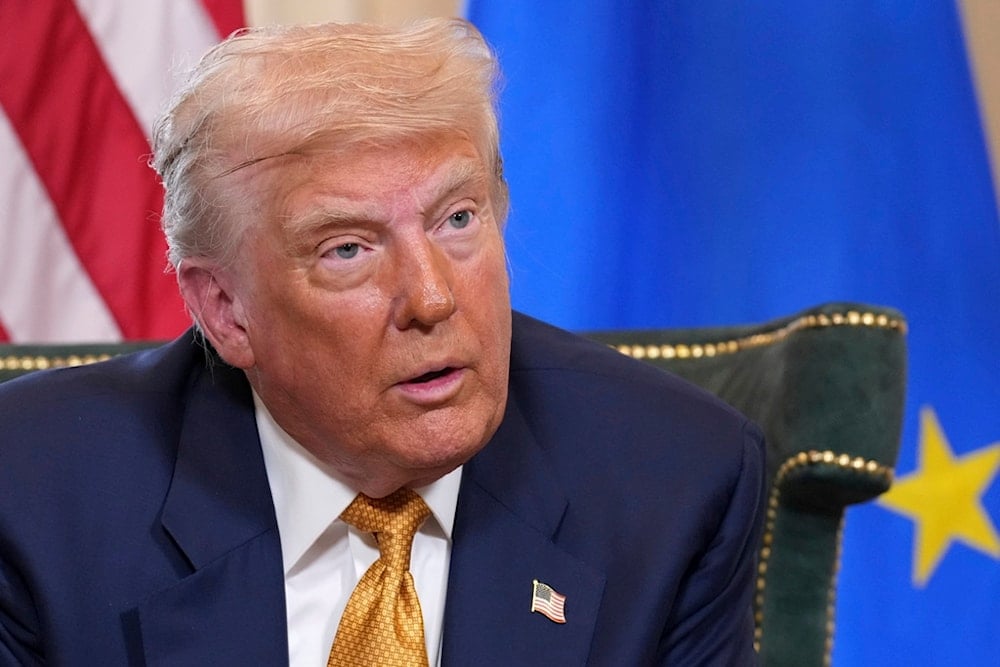Trump: China deal near, no tariff cuts below 15% for EU imports
During his visit to Scotland, US President Donald Trump announced that a trade deal with China was nearly complete while rejecting EU requests for lower tariffs.
-

President Donald Trump speaks as he meets European Commission President Ursula von der Leyen at the Trump Turnberry golf course in Turnberry, Scotland Sunday, July 27, 2025 (AP)
US President Donald Trump on Sunday signaled progress in trade negotiations with China while standing firm on his tariff strategy against the European Union, as back-to-back talks unfolded during his visit to Scotland.
Speaking alongside European Commission President Ursula von der Leyen, Trump indicated that a deal with Beijing was nearly complete. "We are very close to a deal with China. We really sort of made a deal with China, but we'll see how that goes," he said.
The agreement in question builds on recent commitments from both countries: China is expected to ease export restrictions on rare earths, while the US will maintain a 55% tariff rate, part of a temporary truce set to expire August 12 unless a final accord is signed.
While projecting optimism on China, Trump struck a markedly different tone with Brussels. Asked whether the European Union might receive a tariff rate lower than the proposed 15%, he replied flatly: "Better meaning lower? No."
The 15% figure, currently under negotiation, represents a midpoint between Trump's original threat of 30% duties and the EU's request for tariff relief, particularly on automotive and steel exports.
Tariffs, tensions, talks
Ongoing talks between Washington and Brussels are aiming to avoid a full-blown trade war, with the EU warning it could impose retaliatory tariffs on up to €109 billion worth of American goods should negotiations collapse. Meanwhile, the 50% tariff on US steel and aluminum remains untouched, adding further strain to transatlantic relations.
Trump's remarks reflect the broader contours of his "reciprocal tariffs" doctrine, introduced earlier this year, which imposed sweeping duties averaging 10% across multiple trading partners, with some country-specific rates exceeding 50%. This hardline stance has drawn legal challenges, including a May ruling by a US trade court that found elements of the tariff program exceeded presidential authority.
The meeting with von der Leyen was part of Trump's five-day diplomatic tour in the United Kingdom, which has drawn demonstrations in several cities.
Read more: Trump's Scotland visit met with protests and Palestinian solidarity

 2 Min Read
2 Min Read









